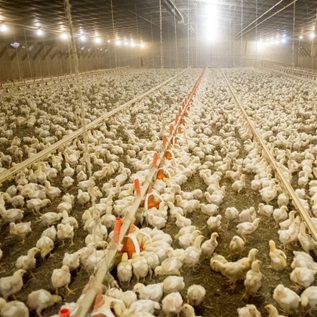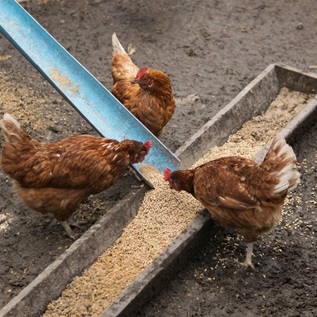Food Safety Victim Testimony: Paul Schwarz
In February 2013, Paul Schwarz delivered the following testimony at a public meeting held by the U.S. Food and Drug Administration (FDA) in Washington, DC. The meeting was one of a series organized to receive comments on rules that FDA is proposing to implement the FDA Food Safety Modernization Act, or FSMA.
 My name is Paul Schwarz. I was named after my father, a World War II veteran and double Purple Heart recipient. After the war, my dad worked for a printing company, a bakery, and then as an agent for the Metropolitan Life Insurance Company beginning in 1956. He retired in 1981 at age 63. He was a father to five, grandfather to nine, and great-grandfather to 10. I never could have guessed that a man considered to be an All-American hero by everyone who knew him would die because of something he ate.
My name is Paul Schwarz. I was named after my father, a World War II veteran and double Purple Heart recipient. After the war, my dad worked for a printing company, a bakery, and then as an agent for the Metropolitan Life Insurance Company beginning in 1956. He retired in 1981 at age 63. He was a father to five, grandfather to nine, and great-grandfather to 10. I never could have guessed that a man considered to be an All-American hero by everyone who knew him would die because of something he ate.
Video: Listeria Victim's Son Says "Food Safety Should Be Paramount in This Country"
In 2011, it was a cantaloupe contaminated with the lethal bacteria Listeria that ultimately killed him — a food he regularly enjoyed for breakfast that summer. On September 15th, he was taken to an area hospital. He was released, but unfortunately readmitted shortly after. He remained in the hospital for a month. He wasn't able to return home, and instead was forced to move into a rehabilitation center.
On the morning of September 19th, Dad awoke to discover that he couldn't move his legs. He was taken by ambulance to the hospital, never to return to the home that he shared with his wife of 68-plus years. After a month-long hospital stay, Dad was moved to a rehabilitation facility.
His hospital stay was filled with intravenous antibiotics, mood swings, and delirium. He had to be constantly monitored to keep from falling out of bed. Dad was too weak to feed, bathe, and clothe himself. After being moved to the rehab facility, it was more of the same.
Surprising no one, my dad did not go down without a fight. For nearly three months, he fought through brain damage and the inability to walk. After our family stood by his side, witnessing the painful effects of the infection take hold first of his body, and then his brain, Listeria defeated him. My father was 92 years old.
We must do everything we can to reduce the risk of foodborne illness. That is why I have come to Washington, DC, today, to speak in favor of the proposed produce rule. I am glad to see that the draft rule covers all steps of produce production—including packing — and that all routes of contamination — including equipment and tools — are addressed in the proposal. The outbreak that led to my father's death was eventually linked to a failure to use adequate and appropriate equipment to clean produce. The provisions in the proposed rule to prevent such negligence are vital, and may help prevent any future loss of life.
I also want to commend FDA for its plan to increase inspections of cantaloupe packinghouses here in the United States during the 2013 growing season, and its commitment to take action to protect the public health if problems are uncovered.
I am hopeful that once the FDA Food Safety Modernization Act is fully implemented and enforced, fewer families will be forced to experience loss the way mine did.











